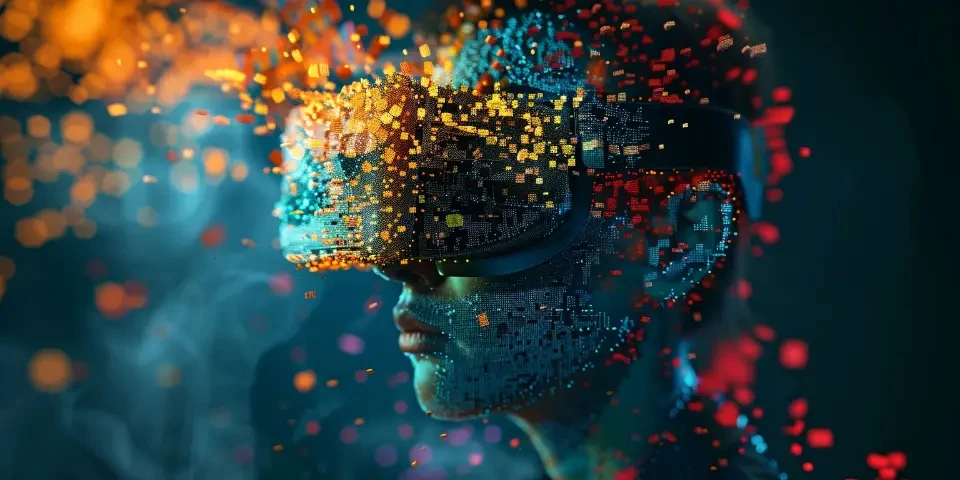From virtual to reality Unleashing the power of AI in immersive gaming experiences
Immersive gaming experiences have transformed the way we interact with virtual worlds. Thanks to advancements in artificial intelligence (AI), the boundaries between virtual and reality continue to blur. In this article, we will explore how AI is revolutionizing gaming and the incredible potential it holds for the future.
1. AI-powered NPCs: Bringing Characters to Life
In traditional gaming, non-playable characters (NPCs) were often predictable and lacked depth. With AI, NPCs can now exhibit human-like behavior, making the gaming experience more immersive and realistic. AI algorithms enable NPCs to learn and adapt to players' actions, resulting in dynamic and engaging interactions.

This integration of AI also allows NPCs to communicate using natural language processing (NLP) techniques, making conversations with them feel more authentic. As a result, players can have meaningful interactions and develop emotional connections with virtual characters.
2. Intelligent Game Design: Personalized Challenges
AI algorithms can analyze players' preferences and play styles to create personalized challenges. By studying player behavior, AI-powered systems can dynamically adjust the difficulty level, ensuring that players are constantly engaged and challenged.
Moreover, AI can generate procedurally generated content, such as levels, quests, and items. This not only saves development time but also provides players with endless possibilities and a unique gaming experience with each playthrough.
3. Enhanced Realism: Graphics and Physics
AI-driven algorithms are revolutionizing the world of graphics and physics in gaming. Through machine learning, AI can enhance the realism of virtual worlds by generating high-resolution textures, realistic lighting effects, and lifelike animations.
Additionally, AI-powered physics engines simulate real-world physics more accurately, enabling objects and characters to interact with their environment in a realistic manner. This level of detail further immerses players in the virtual world, blurring the line between what is real and what is not.
4. Intelligent Camera Systems: Cinematic Experiences
AI-powered camera systems in games can replicate the role of a cinematographer, capturing the most exciting and cinematic moments during gameplay. These systems use AI algorithms to analyze the gameplay and determine the most visually appealing angles and shots.
With AI-driven cameras, players can feel like the protagonists of their own action movie, as the camera automatically adjusts to create immersive and visually stunning sequences.
5. Adaptive AI Opponents: Challenging Gameplay
Playing against computer-controlled opponents can often become predictable and monotonous. AI has revolutionized this aspect by creating adaptive opponents that can learn, strategize, and react to players' actions.
AI-powered opponents analyze the player's behavior, weaknesses, and play style, adapting their strategies in real-time. This not only provides a more challenging experience but also ensures that players never face the same opponent twice.
6. Natural Language Processing: Voice Commands and Voice Acting
AI-powered natural language processing (NLP) allows players to interact with the game environment using voice commands. This removes the need for cumbersome button combinations and enhances the overall immersion.
Furthermore, AI can generate voice acting for characters, reducing the need for human voice actors. The use of AI-generated voices enables developers to create diverse and unique characters with varied accents and speech patterns.
7. AI-Assisted Game Development: Streamlining Processes
AI technologies are increasingly being used to streamline game development processes. For example, AI algorithms can automatically generate terrain, populate environments with objects, and optimize game performance.
Furthermore, AI-powered tools can assist developers in tasks like bug detection and playtesting. By reducing the time spent on repetitive and mundane tasks, developers can focus more on creativity and innovation.
8. FAQs (Frequently Asked Questions)
Q: Can AI create game narratives?
A: While AI can assist in generating game content, including dialogue and quests, fully autonomous narrative creation is still relatively complex. AI lacks the creative and contextual understanding required for crafting complex narratives.
Q: Can AI detect and prevent cheating in multiplayer games?
A: Yes, AI algorithms can analyze gameplay patterns and detect suspicious behavior that may indicate cheating. AI-based anti-cheat systems are becoming increasingly effective in maintaining fair and balanced gameplay environments.
Q: Is AI capable of developing its own games?
A: While AI has been used to create simple games, fully autonomous game development is still an area of ongoing research. AI lacks the creative and conceptual understanding required to develop complex and innovative game experiences.
Conclusion
The integration of AI in immersive gaming experiences has unlocked a whole new world of possibilities. From lifelike NPCs and personalized challenges to enhanced graphics and adaptive opponents, AI continues to push the boundaries of virtual reality. With further advancements, we can expect more realistic, interactive, and captivating gaming experiences in the future.
References:
[Include references here]
Explore your companion in WeMate